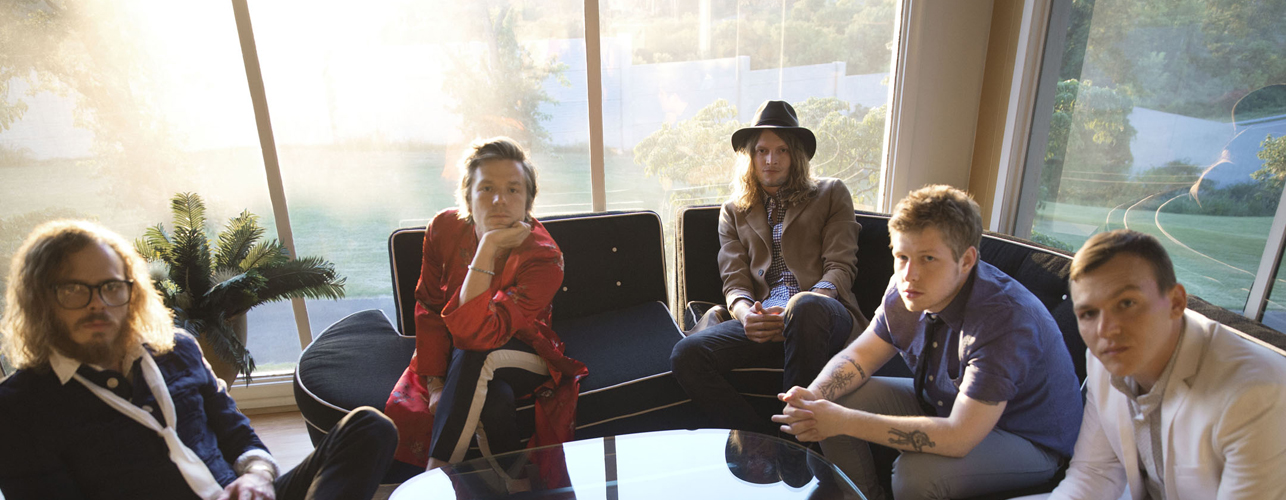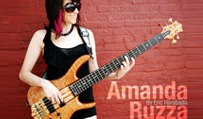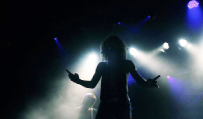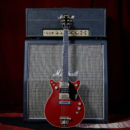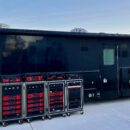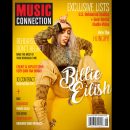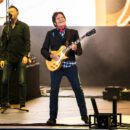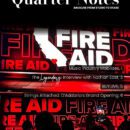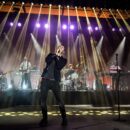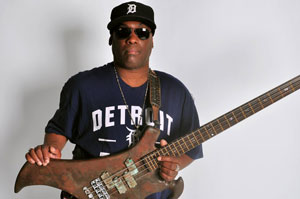 Kern Brantley Lady Gagaz
Kern Brantley Lady Gagaz
Contact: kernbrantley@ymail.com
Kern Brantley has played bass and/or served as musical director for a Who’s Who of jazz, pop and R&B acts. Currently with Lady Gaga, the Detroit born and bred Brantley initially studied with Motown Funk Brother Earl Van Dyke. Brantley has gone on to support Grover Washington Jr., Earl Klugh, the Winans, Bobby Brown, New Kids on the Block and a breathtaking laundry list of contemporary music icons.
What have you done in the past year to become a better musician?
Normally, if I have a gig coming up I spend a lot of hours practicing and analyzing the music of the artist I’m working with. I study all types of jazz and listen to a lot of hip-hop. I do a lot of programming where I spend a lot of time preparing and getting the right sounds, getting the bass to sound a certain way for specific kinds of music.
What do you notice when you hear a recording of yourself from five or 10 years ago?
I played the bass line on “Gettin’ Jiggy Wit’ It” by Will Smith. On that particular record I used a Fender Jazz Bass, with no effects and just a dry tone. These days I’m using more effects. It’s a little more processed; more compression, delays and stuff. Back then my tone was more natural.
Do you have a regular guitar/gear roadie/tech?
My most recent was a guy named Reagan Wexler. He was working with Sevendust and is a drummer, but is a bass tech as well.
Do you have a mentor?
Definitely! One mentor coming out of Detroit is Nate Watts. He’s the musical director for Stevie Wonder and he’s one of the first bass players I saw who was also a musical director. He inspired me to wanna do that. Greg Phillinganes is a keyboard player from Detroit who was the musical director for Michael Jackson. As a bassist, James Jamerson was a big influence. Later influences were Marcus Miller, Nathan East, Larry Graham, Lamont Johnson and Ralphe Armstrong.
What is your most underappreciated quality?
I wanna be recognized more for my synthesizer bass playing. Nowadays, with these big pop gigs, you must play bass synthesizer and bass guitar. A lot of bass players are good, but when they get on synth they can’t program or they don’t make it feel right. As a bass player, when I play synthesizer, I make it feel like a bass guitar, with the right moves, the right slides and the right spaces. I create patches and program sounds that are similar to the bass.
What was your worst onstage mishap?
As a kid I was playing a gig in downtown Detroit. My amp wasn’t grounded to the power source and I actually got electrocuted on stage! I went to touch my guitar and I had a mic in my hand at the same time. Someone had to knock the mic stand out of my hand. Another time I was performing at Ford Auditorium, with Earl Klugh and the Detroit Symphony Orchestra. At the end of the show I got to play this big bass solo. I walked up to do my solo and the cord pops out…..EHHHH [laughs]! I came in too, boy, for about three seconds! And orchestra people are so sensitive to any loud noises. I was so nervous!
Tell us about your gear endorsements.
I play Warwick basses and use T.C. Electronics. I also endorse Moog Music keyboard bass synthesizers—The Tribute 37 and Voyager keyboards. My brother and I program for Roland keyboards. I use the Roland Jupiter 80 as my controller.


